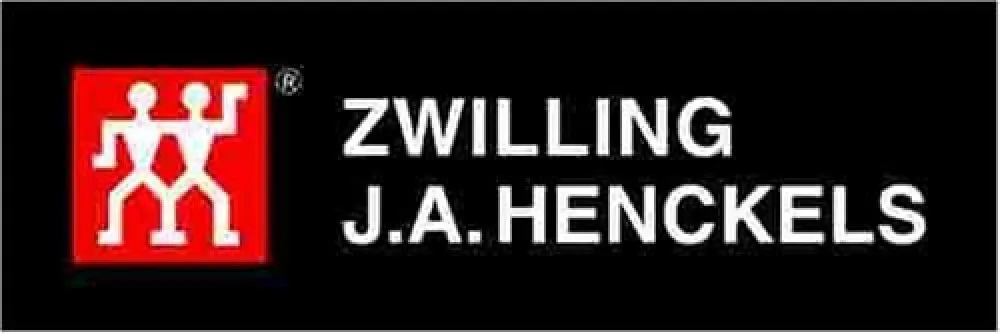ON THIS DAY IN HISTORY
May 1, 1960 - An American U-2 spy plane flying at 60,000 feet was shot down over Sverdlovsk in central Russia on the eve of a summit meeting between President Dwight D. Eisenhower and Soviet Russia's Premier Nikita Khrushchev. The sensational incident caused a cancellation of the meeting and heightened existing Cold War tensions. The pilot, CIA agent Francis Gary Powers, survived the crash, and was tried, convicted and sentenced to 10 years in prison by a Russian court. Two years later he was released to America in exchange for an imprisoned Soviet spy. On his return to America, Powers encountered a hostile public which apparently believed he should not have allowed himself to be captured alive. He died in a helicopter crash in 1977.
Birthday - African American Olympic athlete Archie Williams (1915-1993) was born in Oakland, California. Williams, along with Jesse Owens, defeated German athletes at the 1936 Berlin Olympics and helped debunk Adolf Hitler's theory of Aryan racial superiority. Williams won a gold medal in the 400-meter race. After the Olympics, he went on to earn a mechanical engineering degree from the University of California-Berkeley but faced discrimination and wound up digging ditches. He later became an airplane pilot and trained Tuskegee Institute pilots including the black air corp of World War II.
May 4, 1886 - The Haymarket Square Riot occurred in Chicago after 180 police officers advanced on 1,300 persons gathered in the square listening to speeches of labor activists and anarchists. A bomb was thrown. Seven policemen were killed and over 50 wounded. Four anarchists were then charged with conspiracy to kill, convicted and hanged while another committed suicide in jail. Three others were given lengthy jail terms.
May 4, 1970 - At Kent State University, four students - Allison Krause, 19; Sandra Lee Scheuer, 20; Jeffrey Glenn Miller, 20; and William K. Schroeder, 19 - were killed by National Guardsmen who opened fire on a crowd of 1,000 students protesting President Richard Nixon's decision to invade Cambodia. Eleven others were wounded. The shootings set off tumultuous campus demonstrations across America resulting in the temporary closing of over 450 colleges and universities.
May 5th - Celebrated in Mexico as Cinco de Mayo, a national holiday in remembrance of the Battle of Puebla in 1862, in which Mexican troops under General Ignacio Zaragoza, outnumbered three to one, defeated the invading French forces of Napoleon III.
May 5, 1865 - Decoration Day was first observed in the U.S., with the tradition of decorating soldiers' graves from the Civil War with flowers. The observance date was later moved to May 30th and included American graves from World War I and World War II, and became better known as Memorial Day. In 1971, Congress moved Memorial Day to the last Monday in May, thus creating a three-day holiday weekend.
May 5, 1961 - Alan Shepard became the first American in space. He piloted the spacecraft Freedom 7 during a 15-minute 28-second suborbital flight that reached an altitude of 116 miles (186 kilometers) above the earth. Shepard’s success occurred 23 days after the Russians had launched the first-ever human in space, cosmonaut Yuri Gagarin, during an era of intense technological competition between the Russians and Americans called the Space Race.
May 6, 1937 - The German airship Hindenburg burst into flames at 7:20 p.m. as it neared the mooring mast at Lakehurst, New Jersey, following a trans-Atlantic voyage. Thirty six of the 97 passengers and crew were killed. The inferno was caught on film and also witnessed by a commentator who broke down amid the emotional impact and exclaimed, "Oh, the humanity!" The accident effectively ended commercial airship traffic.
May 7, 1915 - The British passenger ship Lusitania was torpedoed by a German submarine off the coast of Ireland, losing 1,198 of its 1,924 passengers, including 114 Americans. The attack hastened neutral America's entry into World War I.
May 7, 1992 - The 27th Amendment to the U.S. Constitution was ratified, prohibiting Congress from giving itself pay raises.
Birthday - Harry S. Truman (1884-1972) the 33rd U.S. President was born in Lamar, Missouri. He became president upon the death of Franklin D. Roosevelt in April 1945. Two weeks after becoming president he was informed of the top secret Atomic bomb project. In the war against Japan, an Allied invasion of Japan was being planned which would cost a minimum of 250,000 American lives. Truman then authorized the dropping of the bomb. On August 6, 1945, the first bomb exploded over Hiroshima, followed by a second bomb dropped on Nagasaki on August 9th. The next day, Japan sued for peace. Truman served as President until January of 1953. He was the last of only nine U.S. Presidents who did not attend college. His straightforward, honest, no-nonsense style earned him the nickname, "Give 'em hell, Harry."
May 10, 1869 - The newly constructed tracks of the Union Pacific and Central Pacific railways were first linked at Promontory Point, Utah. A golden spike was driven by Leland Stanford, president of the Central Pacific, to celebrate the linkage. It is said that he missed the spike on his first swing which brought roars of laughter from men who had driven thousands upon thousands of spikes themselves.
May 10, 1994 - Former political prisoner Nelson Mandela was inaugurated as president of South Africa. Mandela had won the first free election in South Africa despite attempts by various political foes to deter the outcome.
May 14, 1607 - The first permanent English settlement in America was established at Jamestown, Virginia, by a group of royally chartered Virginia Company settlers from Plymouth, England.
May 14, 1804 - Meriwether Lewis and William Clark departed St. Louis on their expedition to explore the Northwest. They arrived at the Pacific coast of Oregon in November of 1805 and returned to St. Louis in September of 1806, completing a journey of about 6,000 miles.
May 14, 1796 - Smallpox vaccine was developed by Dr. Edward Jenner, a physician in rural England. He coined the term vaccination for the new procedure of injecting a milder form of the disease into healthy persons resulting in immunity. Within 18 months, 12,000 persons in England had been vaccinated and the number of smallpox deaths dropped by two-thirds.
May 14, 1942 - During World War II, an Act of Congress allowed women to enlist for noncombat duties in the Women's Auxiliary Army Corps (WAAC), the Women Appointed for Voluntary Emergency Service (WAVES), Women's Auxiliary Ferrying Squadron (WAFS), and Semper Paratus Always Ready Service (SPARS), the Women's Reserve of the Marine Corp.
May 17, 1792 - Two dozen merchants and brokers established the New York Stock Exchange. In good weather they operated under a buttonwood tree on Wall Street. In bad weather they moved inside to a coffeehouse to conduct business.
May 17, 1954 - In Brown v. Board of Education, the U.S. Supreme Court unanimously ruled that segregation of public schools "solely on the basis of race" denies black children "equal educational opportunity" even though "physical facilities and other 'tangible' factors may have been equal. Separate educational facilities are inherently unequal." Thurgood Marshall had argued the case before the Court. He went to become the first African American appointed to the Supreme Court.
May 18, 1980 - Mount St. Helens volcano erupted in southwestern Washington State spewing steam and ash over 11 miles into the sky. This was the first major eruption since 1857.
May 20, 1862 - President Abraham Lincoln signed the Homestead Act opening millions of acres of government owned land in the West to "homesteaders" who could acquire up to 160 acres by living on the land and cultivating it for five years, paying just $1.25 per acre.
May 20, 1927 - Charles Lindbergh, a 25-year-old aviator, took off at 7:52 a.m. from Roosevelt Field, Long Island, in the Spirit of St. Louis attempting to win a $25,000 prize for the first solo nonstop flight between New York City and Paris. Thirty-three hours later, after a 3,600 mile journey, he landed at Le Bourget, Paris, earning the nickname "Lucky Lindy" and becoming an instant worldwide hero.
May 20, 1932 - Amelia Earhart became the first woman to fly solo across the Atlantic. She departed Newfoundland, Canada, at 7 p.m. and landed near Londonderry, Ireland, completing a 2,026-mile flight in about 13 hours. Five years later, along with her navigator Fred Noonan, she disappeared while trying to fly her twin-engine plane around the equator.
May 21, 1881 - The American Red Cross was founded by Clara Barton. The organization today provides volunteer disaster relief in the U.S. and abroad. Community services include
May 24, 1844 - Telegraph inventor Samuel Morse sent the first official telegraph message, "What hath God wrought?" from the Capitol building in Washington, D.C., to Baltimore.
May 25, 1787 - The Constitutional Convention began in Philadelphia with delegates from seven states forming a quorum.
May 27, 1937 - In San Francisco, 200,000 people celebrated the grand opening of the Golden Gate Bridge by strolling across it.
Birthday - All-around athlete Jim Thorpe (1888-1953) was born near Prague, Oklahoma. He won the pentathlon and decathlon events at the 1912 Olympic Games and also played professional baseball and football.
May 29, 1865 - Following the American Civil War, President Andrew Johnson issued a proclamation granting general amnesty to Confederates. The amnesty excluded high ranking Confederates and large property owners, who had to apply individually to the President for a pardon. Following an oath of allegiance, all former property rights, except slaves, were returned to the former owners.
May 30, 1783 - The Pennsylvania Evening Post became the first daily newspaper published in America.
May 30, 1922 - The Lincoln Memorial in Washington, D.C., was dedicated. The Memorial was designed by architect Henry Bacon and features a compelling statue of "Seated Lincoln" by sculptor Daniel Chester French.
May 31, 1889 - Over 2,300 persons were killed in the Johnstown flood in Pennsylvania. Heavy rains throughout May caused the Connemaugh River Dam to burst sending a wall of water 75 feet high pouring down upon the city.



















